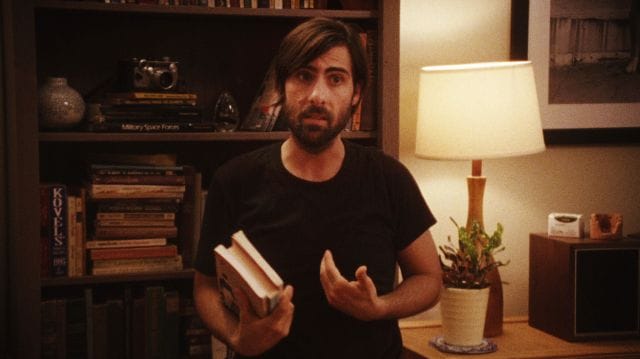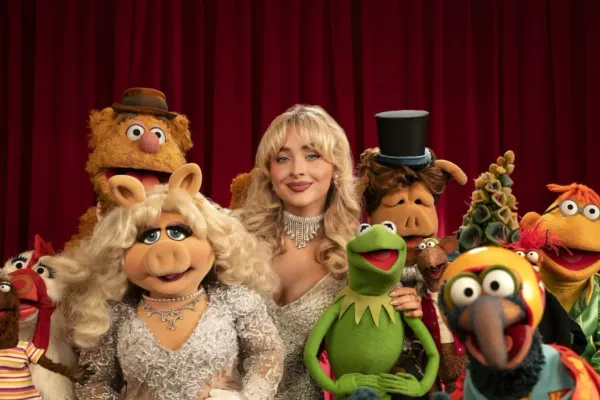Episodes:

Privilege is a hard thing to talk about, both in art and in life. It's almost impossible to confront somebody on it without coming off as a huge jerk. The simple fact of the matter is that telling someone they're failing to check their privilege is telling them that, through literally no fault of their own, they make the world a worse place by being part of systems set up in their favor. It's not fun to consider that maybe things aren't so grand, simply because you exist. After all, you didn't have much of a say in the matter.
But white male privilege is the hardest thing to get somebody to wrap their head around, and I think it's because, paradoxically, the very concept of it asks us to diminish those who benefit from it a little bit, to think of them less as human beings and more as systemic oppressors, knowingly or not. Now, the obvious counterargument to this is that after centuries of blithely unchecked power, it's probably OK to at least make those who benefit feel slightly uncomfortable, at the very least. And I think there's some truth to that. But the best way forward, I think, is to acknowledge the role privilege plays on a societal level, while also acknowledging that those who benefit from it are individual human beings as worthy of our empathy as anybody else.
There are only a handful of works of art that really get to that point, I think, but I'd count among them Alex Ross Perry's terrific 2014 film Listen Up Philip, which only slowly reveals all of its cards. At first, it just seems to be about the Philip of the title (played by Jason Schwartzman), an all-around unpleasant person and acclaimed author who believes he's about to be handed everything the world owes him.
But as time goes on, you start to see all of the invisible benefits Philip gets simply from existing in the world as a white man (and, not insignificantly, a white man of the upper classes). He can speak his mind to anyone he wants with little consequence. He can be a complete jerk without really suffering for it.
It's not always clear what Perry is doing with the occasional bits of narration from Eric Bogosian, which seem to describe too thoroughly what all of the characters are going through internally, until you start to see all of the ways the things Bogosian says drift from what's actually happening onscreen. By the end of the film, Bogosian's drone is covering up legitimately heartwrenching moments for Philip, moments that will cause him to shut himself off even more from the world. In some ways, Bogosian is the language of privilege, the way that it allows those who wield it to retcon the disappointments of the past into something better, grist for the literary mill.
For almost all of the film, Perry lets you think of Philip mostly as an all-purpose antagonist to every character in the movie, including himself. He is not a kind man, and he is rarely a good person. Slowly but surely, Perry drifts from Philip's perspective, spending more and more time with other people in his orbit, all the better to make you consider Philip primarily from the point-of-view of those he's most hurt. This is especially true of an astonishing mid-film sequence that follows Philip's ex-girlfriend, Ashley (Elisabeth Moss, further solidifying a claim as a tremendously exciting film actress), as she attempts to cope with her breakup. This section is filled with real feeling and soul. She has been wounded, and she doesn't know how to stitch herself back together.
But it's all key to draw contrast for when the film flips its final card. Philip might be a jerk, and he might be completely unaware of how much he's benefited from the genetic lottery. But he's also a human being, deserving of some base level of empathy. Perry gives the character a chance to figure out just how much misery he spreads, then sends him back into the comforting blanket of thinking the problem with the world is everybody else. And once Philip has detached from this last semblance of humanity, the film withers up and floats away. It reminded me of The Sopranos, actually.
In particular, pay attention to how Perry uses close-ups, almost always situating them in moments when the characters come to UNDERSTAND something on a bone-deep level. The close-ups of Philip always stop just short of this moment. He comes close, but he doesn't get there, because the world doesn't force him to consider anybody but himself. Ashley, also rich, also white, benefits from a fair amount of privilege herself, but she has to put up with, forever, the fact that she is a woman and thus slotted into certain predefined roles. She has to look outside of herself, at least a little bit. Philip doesn't, and it's what dooms him.
Listen Up Philip is a dark, dark film, and it feels, at times, like a cynical bleat of despair. But buried deep within it is a sense of the tragedy of its central character's life. It finds him a complete and utter jackass, unworthy of human love or companionship. And yet it also feels a deep compassion for him. This, I think, is how art made by the privileged can best confront the weight of that privilege. Even those who are held most aloft by privilege, who remain most oblivious to it, are fellow humans. And that should make us both more disappointed in them and more hopeful that they will, sooner or later, listen up.
--
No Episodes on Monday! I am going to enjoy the holiday with family.
--
Episodes is published daily, Monday through Friday, unless I don't feel like it. It is mostly about television, except when it's not. Read more of my work at Vox Dot Com.




